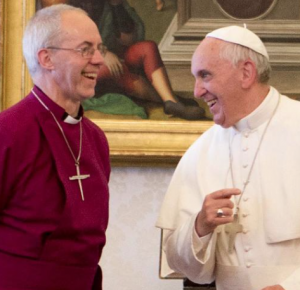Regular readers of this blog will know I love my small group! I’ve talked about them here and here (and one of the people in my small group wrote a post for me here). Last week, we started something new.
We are studying the book of Ecclesiastes every other week when we meet. We each commit to reading and reflecting on the same chunk before we meet, and then we discuss it together. I’ve decided that I’m going to blog along with this, trying to capture some of what we’ve discovered as we’ve studied this oft-neglected book (inevitably conversations stray beyond the strict boundaries of one specific chapter, so there’ll be thought from other parts of the book, and of the Bible, as well).
Last week we kicked off with Ecclesiastes chapter 1.

Life under the sun: meaningless
These verses can make pretty soul-destroying reading. They speak of the meaninglessness of everything in this world. Work, pleasure, wisdom, knowledge. Ultimately, nothing lasts, nothing new comes along and things just keep going round and round and round. Some things may be good for a while, but then we die, rendering it all ultimately pointless.
It’s not very hopeful. As one person said last week, “Ecclesiastes 1 may not be the best thing to read on a Monday morning when you didn’t really want to go to work anyway!”
This is Solomon’s declaration about everything in this world, under the sun. None of it really means anything beyond itself. Nothing has a higher purpose or meaning. It’s all just there. Until it’s not. And even that doesn’t matter, really.
The word meaningless isn’t a positive word. Nobody uses that as a positive thing. And the very fact that we use ‘meaningless’ as a negative shows that we like meaning. We want for our lives, for this world, to mean something. We all want meaning.
So this is a pretty bleak picture.

What about … OVER the sun, maybe?
This might make me a little unpopular, but I believe it’s true: if this life and this world is all there is, then nothing has any real meaning or purpose. The most we can hope for is to enjoy it a bit while it lasts, but none of it matters.
But Solomon’s description is of life ‘under the sun’ (at one point ‘under the heavens’). When looking at this world purely as a self-contained system, when judging it by its own merits, it’s meaningless. Solomon’s understanding of the world, though, would have been far from that.
He knew and understood there was more to life than that. In Hebrew biblical thought, the physical world we see around us is just one part of the much larger spiritual realm in which God exists and rules. There is FAR more to life than meets the eye.
 This isn’t all there is.
This isn’t all there is.
Where does your meaning come from?
What these verses do, then, is not slam this world as pointless. They do something far more than that. They expose the fact that without God the world is meaningless, so we stop looking for our meaning anywhere other than God.
The truth is, we often give the things in our lives – jobs, relationships, money, hobbies, pleasure – the wrong kind of significance. We think they have such meaning, but on their own they don’t.
This is why Ecclesiastes 1 is exactly the sort of thing we should be reading on Monday mornings when we didn’t want to go to work anyway. We need to be reminded that there is a purpose to this life, that God made things for a reason, made us for a reason, made us to work for a reason, rest for a reason, fall in love for a reason.
Remembering that God is in this world and has plans for it gives everything meaning, but the right kind of meaning!
It stops things masquerading as all-important and instead lets them take their rightful place. Their place as something which God has made for a purpose. Something through which we can find God, serve God, love God. Something through which we can partner with God to bring about His purposes.
Everything has a purpose, so everything is an opportunity. That isn’t soul-destroying at all. It’s liberating.



 But just because we Christians cannot demand our government act in a certain way, we ourselves must do so. It’s easy to point fingers, but what about us?
But just because we Christians cannot demand our government act in a certain way, we ourselves must do so. It’s easy to point fingers, but what about us?
 It’s good for our communities
It’s good for our communities